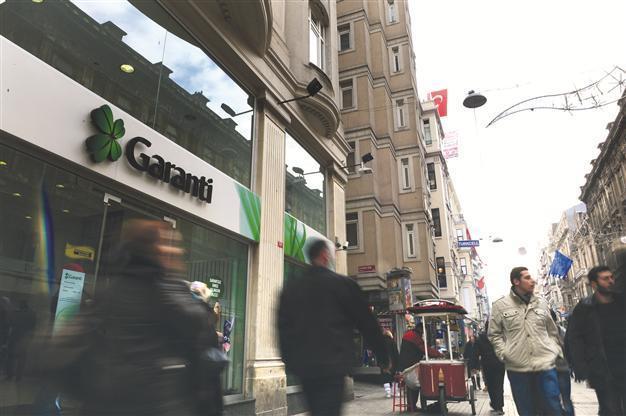Banking bodies see no sharp decline in 2014 bank profits
ISTANBUL - Reuters

Turkish banking sector’s profits dropped by 43. 9 percent in January due to the higher interest rate and limits on loand and credit cards.
Top representatives of the Turkish banking sector do not see a sharp decline in banking sector profits in 2014 as a whole, after they tumbled in January.Speaking during the Turkish-Arab Banking Forum held in Istanbul on March 13, prominent figures of the sector sought to downplay the escalated concerns after the latest data revealed that the Turkish banking sector’s net profit dropped 43.9 percent to 1,415 billion Turkish Liras ($641.6 million) in January.
“As we have said before, some measures taken by the economic management would like to have an adverse effect on the banks’ profits. However, we don’t expect to see a drop in this extent for the whole year,” Turkish Banking Association (TBB) head Hüseyin Aydın told reporters on the sidelines of the forum.
Aydın also said the decline in January was stemmed by the loss driven by the foreign exchange rate differences and reflections of the interest rate hikes.
“But the decline in January’s profits is temporary and the banking sector will gain more money in the remaining half of the year,” he stressed.
Credit growth is expected at 15-20 percent this year, Aydın also said, adding that he expected the ratio of non-performing loans to not exceed 3 percent in 2014.
BDDK measure, lira affect
Mukim Öztekin, the head of the Banking Regulation and Supervision Agency (BDDK), also said the currency rates and the measures taken by the BDDK had an impact on the drop, but said there are no risks threatening the sector’s health.
After the announcement of January’s weak performance, analysts had said they expect to see profits melting throughout the first half of the year, citing expectations of the high-interest environment’s continuation and some macro-prudential measures introduced by the country’s banking watchdog.
In January, the Turkish Central Bank raised all of its key interest rates in a dramatic move in an emergency policy meeting to defend a crumbling currency that is among the most vulnerable to another sell-off. The bank raised its overnight lending rate to 12 percent from 7.75 percent, its one-week repo rate to 10 percent from 4.5 percent, and its overnight borrowing rate to 8 percent from 3.5 percent.
As the pressure on developing market currencies emerging from the U.S. Federal Reserve’s decision to taper its asset purchase program and political tension in Turkey do not seem likely to vanish soon, economists do not foresee any change toward lower interest rates. Adding to the sector’s headaches, the BDDK regulations that limit the number of monthly installments to repay credit cards and loans dashed a blow to the banks’ gains.
















